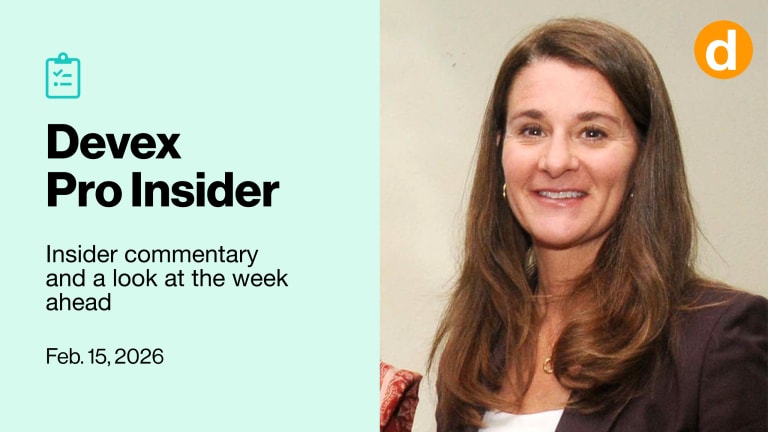Susan Desmond-Hellmann: A passionate innovator to lead the Gates Foundation
For much of the past decade, Susan Desmond-Hellmann has been labeled as a woman to watch out for in the corporate world.
The public health expert, who will soon be running one of the largest and most influential philanthropic organizations in the world, has made her mark within the scientific community as a champion of research and development when it comes to cancer research and drug development.
Except for a couple of years in private practice, Desmond-Hellmann has dedicated almost her entire 35-year career researching and advancing treatment for cancer-related illnesses. At biotech company Genentech, where she stayed for 14 years and became president of product development, she led efforts in developing several anti-cancer drugs, including Avastin and Herceptin.
This story is forDevex Promembers
Unlock this story now with a 15-day free trial of Devex Pro.
With a Devex Pro subscription you'll get access to deeper analysis and exclusive insights from our reporters and analysts.
Start my free trialRequest a group subscriptionSearch for articles
Most Read
- 1
- 2
- 3
- 4
- 5








